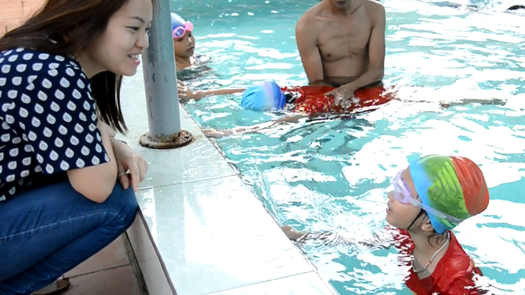November 3, 2025
December 21, 2020
Journalists’ workshop highlights urgency of child drowning prevention in Bangladesh
Journalists play a vital role in highlighting important issues and holding leaders accountable. Unfortunately, with all the competing priorities they need to cover, public health challenges are not always on their radar. The Society for Media and & Suitable Human-communication Techniques (SoMaSHTE), a nonprofit organization in Bangladesh that raises the voices of the poor and marginalized, held a workshop in Dhaka on Nov. 17 to orient journalists to one of the country’s most pressing health challenges: drowning, the leading cause of death in Bangladesh for children under five.
 Mir Masrur Zaman, SoMaSHTe director, welcomes participants to the journalist training.
Mir Masrur Zaman, SoMaSHTe director, welcomes participants to the journalist training.
The workshop was attended by 20 journalists from leading media outlets. One of the key messages: that despite its heavy toll, drowning is very much preventable.
By the end of the workshop, the participants had a better understanding of the issue and their role in sharing information that can prevent deaths. “As a journalist I must say that the topic of the program is very timely and important one,” Hasan Mahmud, a senior correspondent at NTV, a satellite television channel, said. “Recently I have seen some research information about child drowning, but I did not think widely. Today I have received some clear idea of this burning issue and notice that we should work more effectively through our reporting.”
The workshop was opened by Muhammad Ruhul Quddus, country lead for the Global Health Advocacy Incubator (GHAI), which supports SoMaSHTE’s work. He explained that drowning prevention can help to achieve the United Nation’s Sustainable Development Goals (SDGs): “The prevention of different diseases responsible for child deaths is included in the global targets of the SDGs, but it somehow missed any action to address the drowning deaths. However, reducing child drowning injury and deaths is important for Bangladesh to keep the promise it made in the SDGs to reduce child mortality to 25 per thousand children by 2030. If no measure is taken to prevent drowning deaths, it likely to be difficult to get rid of this high child mortality rate.”
Dr. Aminur Rahman, deputy executive director of the Center for Injury Prevention and Research Bangladesh (CIPRB), explained that poverty, unawareness, and lack of institutional initiative are the main causes of child drowning deaths. These deaths typically occur within 20 meters from the home, mostly in ditches and ponds in rural areas. Lack of supervision is a key risk factor for child drowning: 60% of accidents take place between 9:00 am and 1:00 pm, when parents are busy with family responsibilities. For these reasons, studies show that enrolling children under five in community-based day care centers can prevent 70% of child drowning deaths.
The media plays an important role in preventing child drowning in Bangladesh. By raising mass awareness and taking collaborative action, it is possible to save many lives from drowning. Sarwar E Alam, advocacy and communications manager for GHAI, said, “If media houses run more in-depth stories, then the issue will reach to the policy actors, which can lead to the development and implementation of a national program to prevent drowning deaths.”
Related News
View All NewsSeptember 10, 2025
Meet the Future of Domestic Budget Allocation for Health: The new Advocacy Accelerator Cohort
September 10, 2025



